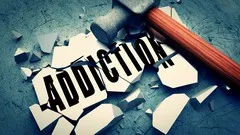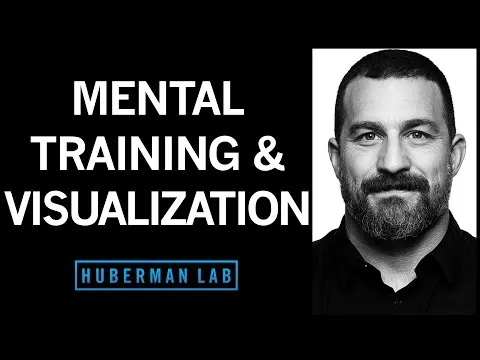
Basic Neuroscience of Addiction and Recovery 
Discover the fascinating world of addiction and recovery with the Basic Neuroscience of Addiction and Recovery course. Whether you're a social worker, therapist, student, or simply interested in understanding the addicted brain, this course is for you. Gain valuable insights into the effects of early trauma on the brain and how it can lead to addictive behaviors. With a compassionate approach and a blend of science and psychology, this course offers real value for money. Join the many professionals who have already benefited from this informative and educational experience. Don't miss out on this opportunity to deepen your understanding and make a positive impact in your practice. ▼
ADVERTISEMENT
Course Feature
![]() Cost:
Cost:
Paid
![]() Provider:
Provider:
Udemy
![]() Certificate:
Certificate:
Paid Certification
![]() Language:
Language:
English
![]() Start Date:
Start Date:
2023-01-26
Course Overview
❗The content presented here is sourced directly from Udemy platform. For comprehensive course details, including enrollment information, simply click on the 'Go to class' link on our website.
Updated in [September 15th, 2023]
What does this course tell?
(Please note that the following overview content is from the original platform)
Suitable for individuals with addictions (substance or behavioural-related addictions) social workers students interested individuals therapists & other professionals who are interested in deeper understanding of the addicted brain and ways to bring about gradual recoveryWhat Attendees Are Saying:This course gave me a real initial insight into the effects that early trauma can have upon the brain affecting an individual's capacity to cope and ultimately be susceptible and drawn' towards addictive behaviours This knowledge will have a real positive effect on my practice It was both fascinating and informative and I will definitely recommend the course to other professionals and individuals Jackie C Psychotherapist Well presented emphasis on compassionate approach whilst describing science It's hard to present complex neuropathology and incorporate the psychological elements I would highly recommend this course really good content and value for money Karen D Advanced Clinical Practitioner I liked the presenter's manner very knowledgeable but also very approachable I will be sharing key points with my team who work in gambling education Christina D Project Development Officer Scottish Gambling Education Hub I found it really interesting and educational I am a Family Recovery coach and work with the loved ones of addicts I nurture them to prioritise their self-care by creating bespoke copying strategies as well as learning about addiction and how to support the addicted loved one in the right way The families become addicted to the addicts' emotions and behaviours without realising it so the models you went through today also relate to the recovery journey of the Families Its virtually a mirror image Linda E Thank you so much for today's course I found it really informative and it has helped me to reconnect to the need for compassion understanding and support in working with traumatised and abused clients It has also allowed me some much needed self compassion Fiona S
We consider the value of this course from multiple aspects, and finally summarize it for you from three aspects: personal skills, career development, and further study:
(Kindly be aware that our content is optimized by AI tools while also undergoing moderation carefully from our editorial staff.)
What skills and knowledge will you acquire during this course?
During this course, attendees will acquire a range of skills and knowledge related to the basic neuroscience of addiction and recovery. They will gain insight into the effects of early trauma on the brain and how it can impact an individual's ability to cope and lead to addictive behaviors. This understanding will enable attendees to have a more compassionate approach in their practice when working with individuals with addictions.
The course will provide a comprehensive overview of the neuropathology of addiction, incorporating both the scientific and psychological elements. Attendees will learn about the underlying mechanisms of addiction and how it affects the brain. They will also explore strategies for gradual recovery and ways to support individuals in their journey towards recovery.
The course has been highly recommended by attendees from various professional backgrounds. They have found the content to be fascinating, informative, and valuable for their practice. The presenter's knowledgeable and approachable manner has been appreciated, making the learning experience engaging and accessible.
For social workers, therapists, and other professionals working with individuals with addictions, this course will provide them with the necessary knowledge and skills to better support their clients. Students and interested individuals will also benefit from a deeper understanding of the addicted brain and the recovery process.
Overall, attendees will acquire a greater understanding of addiction and its impact on the brain, as well as practical strategies for supporting individuals in their recovery journey. This knowledge will have a positive effect on their practice and enable them to provide more compassionate and effective care.
How does this course contribute to professional growth?
This course, "Basic Neuroscience of Addiction and Recovery," significantly contributes to their professional growth as a therapist. Firstly, it provides them with a profound understanding of the addicted brain, whether it's related to substance or behavioral addictions. This knowledge is invaluable in their work with individuals struggling with addiction, as it allows them to grasp the neurobiological underpinnings of addictive behaviors.
Understanding how early trauma can affect the brain and lead to susceptibility to addictive behaviors is a crucial insight gained from the course. This awareness enhances their ability to empathize with their clients and approach addiction from a compassionate standpoint. It equips them with the tools to address not just the behavioral aspects of addiction but also the underlying neurological factors, leading to more effective therapeutic interventions.
The course's emphasis on presenting complex neuropathology while incorporating psychological elements is particularly noteworthy. It equips them with a comprehensive view of addiction, allowing for a holistic approach to recovery. This knowledge empowers them to tailor their therapeutic strategies to the specific needs of each client, enhancing the quality of care they provide.
Furthermore, the positive feedback from course attendees, including Jackie, Karen, Christina, Linda, and Fiona, underscores the course's effectiveness and relevance. The testimonials highlight its ability to provide both fascinating insights and practical value to professionals in various fields related to addiction and recovery.
Is this course suitable for preparing further education?
Yes, this course is suitable for preparing further education. Attendees have reported that the course gave them a real initial insight into the effects of early trauma on the brain and how it can lead to addictive behaviours. They have also reported that the course was well presented, with an emphasis on a compassionate approach while describing the science. The course has also been reported to be informative and educational, providing attendees with the knowledge and skills needed to work with traumatised and abused clients.
Course Syllabus
Introduction
Part 2: Basic Neuroscience of Addiction and Recovery
Part 3: Basic Neuroscience of Addiction and Recovery
Part 4: Basic Neuroscience of Addiction and Recovery
Part 5: Basic Neuroscience of Addiction and Recovery
Course Provider

Provider Udemy's Stats at AZClass
Discussion and Reviews
0.0 (Based on 0 reviews)
Explore Similar Online Courses

The Complete History of Music Part 2: The Renaissance

Game Character Sculpting For Beginners with Zbrush & Maya

Python for Informatics: Exploring Information

Social Network Analysis

Introduction to Systematic Review and Meta-Analysis

The Analytics Edge

DCO042 - Python For Informatics

Causal Diagrams: Draw Your Assumptions Before Your Conclusions

Whole genome sequencing of bacterial genomes - tools and applications

Workplace Neuroscience: Decoding your brain at work

Science-Based Mental Training & Visualization for Improved Learning Huberman Lab Podcast


Start your review of Basic Neuroscience of Addiction and Recovery